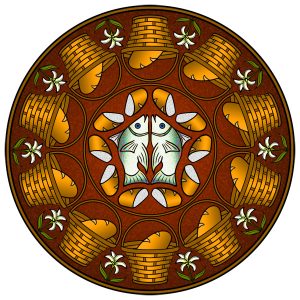The food began to arrive. One ton of New York steak and even more potato salad. Pallets of corn and lettuce followed. It was the afternoon before the Hewlett-Packard Divisional summer picnic. Only a year out of college, I had volunteered to make all the food arrangements for feeding my co-workers and their families. An estimated 5,000 people were to be served the traditional menu of steak, corn on the cob, potato salad, and green salad.
At the last minute, some of my help backed out. My wife-to-be suggested promising refreshments for anyone who would show up to help. Sure enough, a dozen young colleagues turned up. A contest of who could shuck corn the fastest ensued. It was late evening, and the initial preparations were complete. I went home exhausted.
The day of the picnic I was up before dawn to start the corn cooking. Someone who worked in the company machine shop had built a massive corn cooker. Imagine a small, metal hot tub that could boil water and cook a crazy amount of corn quickly. The only issue was that the water took a long time to come to a boil.
My twelve disciples returned just after dawn. We barbequed steak, cooked corn, and served. The food began to disappear quickly and I wondered if we might run out. Folks came back for seconds. By mid-afternoon everyone was fed.
The twelve and I cleaned up, hugged one another, and departed. It had been one of the most intense 24 hour periods of my young life.
A week later, I was handed a small pile of paper. Comments on the food at the picnic. “Good…pretty good…better than last year’s picnic…about the same as last year’s picnic…just OK.” And then I came to it. At the bottom of the pile was a comment from a young individual in HR who had not participated in the any of the picnic preparation efforts. “It wasn’t too good. I think it would be much better to have a nice sandwich.”
Zero thank yous. At the age of 23, I vowed never to volunteer for anything again.
I grew up in the home of a fine Lutheran minister. He listened as I vented my frustration. His fatherly/pastoral counsel was to continue to serve the Kingdom, and to lay up treasures in Heaven. I didn’t understand initially.
At 23, I was already making more money as an Electrical Engineer then he was making as a senior Pastor at a large church. Like the picnic experience, I didn’t see any payoff in his ministry work.
Reflecting on his words, and his example, I realized that his life as a minister was marked by constant ‘picnic-like’ experiences. He never complained to me about this aspect of the ministry. He just kept serving.
LaVerne died young. He had poured out all of his life’s energy into the Church. Before his death, we discussed his decision to join the ministry, how hard he had worked, and how little he had in terms of money and possessions.
He said that when he passed, all he needed to hear from the Master was, “Well done my good and faithful servant.”
Well done LaVerne. Thank-you.

